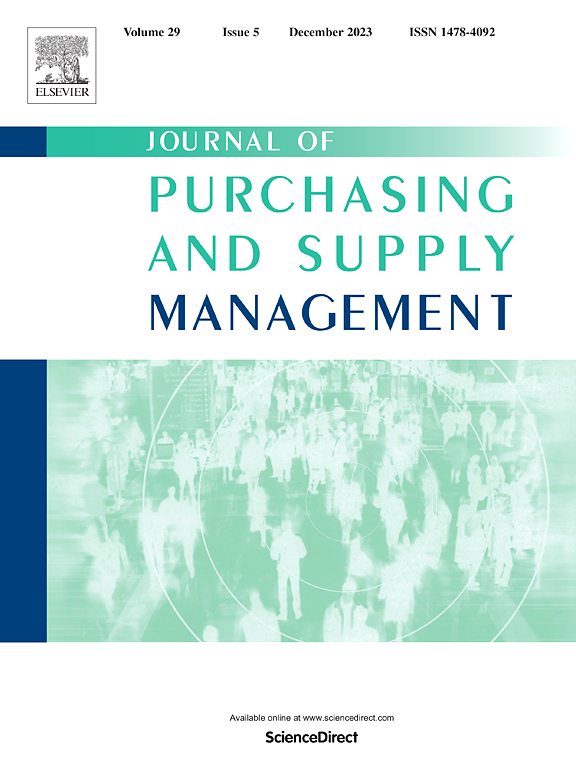On supplier resilience: How supplier performance, disruption frequency, and disruption duration are interrelated
Abstract
Supply chain disruptions have a well-documented detrimental impact on firm performance, and recent crises have reaffirmed this effect. While the relationship between a supplier's overall performance and the frequency and duration of supply chain disruptions is often suggested, it lacks substantial empirical evidence. We conducted three comprehensive empirical analyses using panel data involving 352 suppliers to investigate the relationship between supplier performance and supply chain disruptions. Our findings indicate a negative correlation between supplier performance and the frequency and duration of disruptions, that is, poorly performing suppliers are associated with more frequent and longer disruptions. Furthermore, disruption intensity (disruption frequency × disruption duration) exacerbates the negative impact on performance. We find that disruptions have a milder negative performance effect when they emanate from suppliers that have a history as “good performers” compared to “poor performers.” A supplementary analysis shows that disruptions notably affect supplier quality. This study bears significance for practitioners and contributes to the literature on supplier resilience. Our analyses highlight that supplier performance is not only an important predictor for the occurrence of supply chain disruptions but also mitigates (i.e., moderates) the negative effects in case they occur.

 求助内容:
求助内容: 应助结果提醒方式:
应助结果提醒方式:


